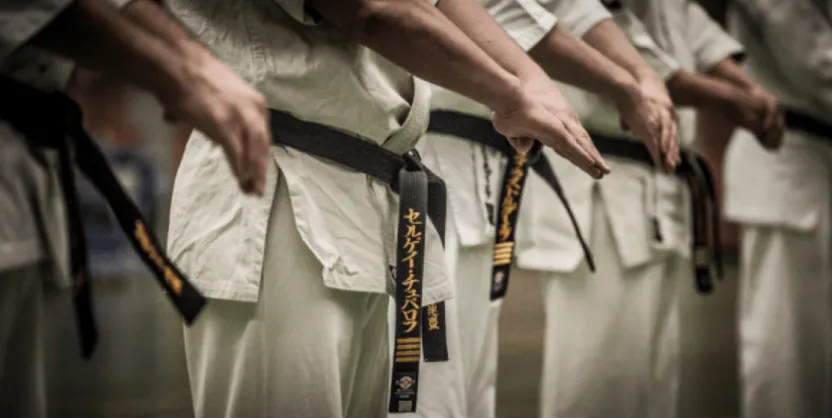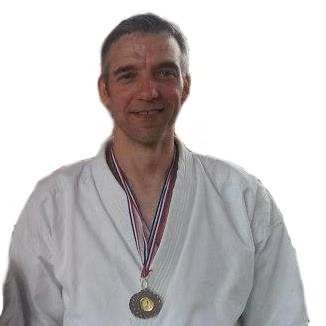 Articles
Articles
An interview with Sensei Cyril Cummins 3
Interviewed by Matt Russell 3rd Dan
 I find karate is the main focus of my day, to what extent and how does it affect yours?
I find karate is the main focus of my day, to what extent and how does it affect yours?
I find it impacts a great deal, I have to think of my students and
set a program out for that evening to teach them, it is very im-
portant to me. In terms of my personal training, I supplement
my karate with weight training and good nutrition, but regular
training is so necessary. It certainly impacts on my life a great
deal.
Who was your favourite sensei to train under and why?
There was no favourite, they were all important. But the most prominent one was of course master Enoeda. Kenosuke Enoeda Sensei, he was very famous, a very strong man. There was also
Kanazawa Sensei who was brilliant. Another was Nakayama Sensei, who was the Head of JKA. As well as Osaka and Sensei Ohta, there were also British Senseis such as Andy Sherry and the hierarchy of the KUGB.
What was your most memorable fight?
For my fifth Dan grading perhaps, it was the nastiest, but mostly because it was so dangerous, so nasty, so painful. There was also my Shodan grading where I received a broken nose and some broken teeth. But all the fights were hard. Most of my opponents controlled their techniques but they were still hard and frightening, but we overcome that through training.
What is your favourite aspect of Shotokan Karate Do?
Kata. Kata and Bunkai. It’s the very essence of Karate-Do. Interwoven into kata are all the different techniques of karate. It is very important to understand your kata for self-defence. Freestyle fighting is also important to keep you sharp and strong, but kata is the soul of karate.
If you could repeat any of the past fifty years, and do anything differently what would you do?
Probably nothing, because the way I’ve come forward has led me to the knowledge I have today. It’s taken almost 50 years, but it’s been a voyage of discovery, some of it was hard, some of it was good, some of it bad but you’ve got to overcome these things, Never give in, Never give up.


